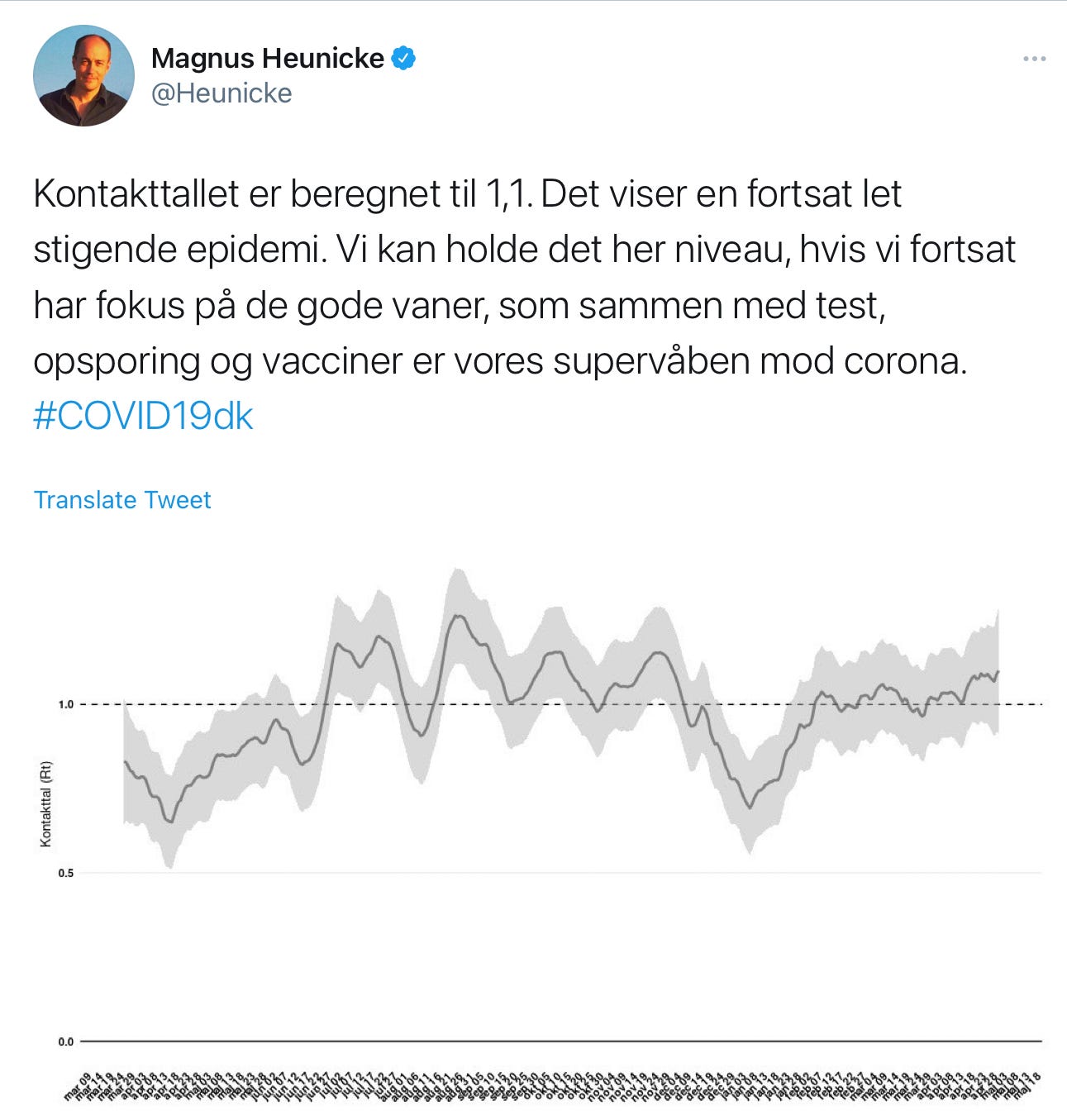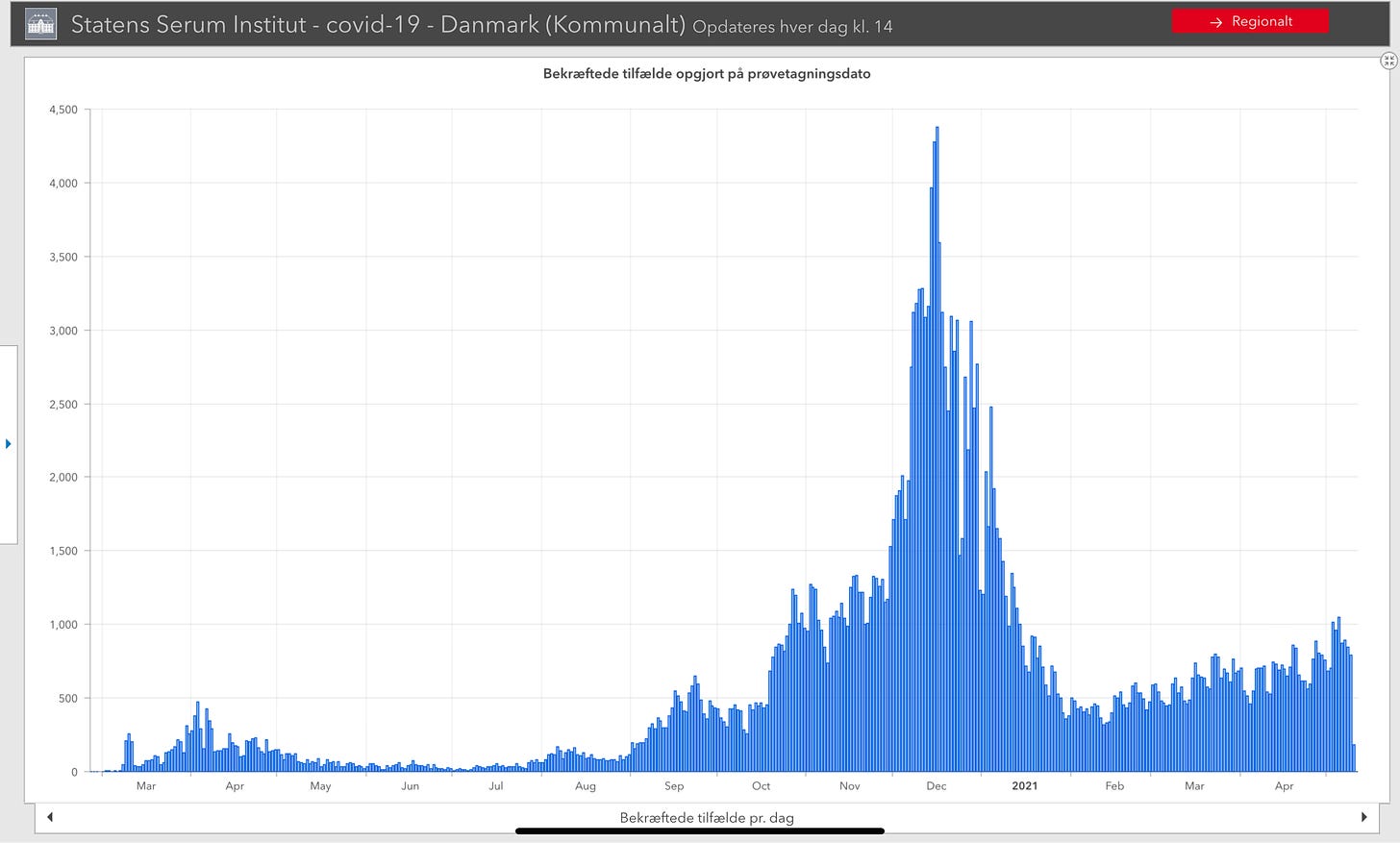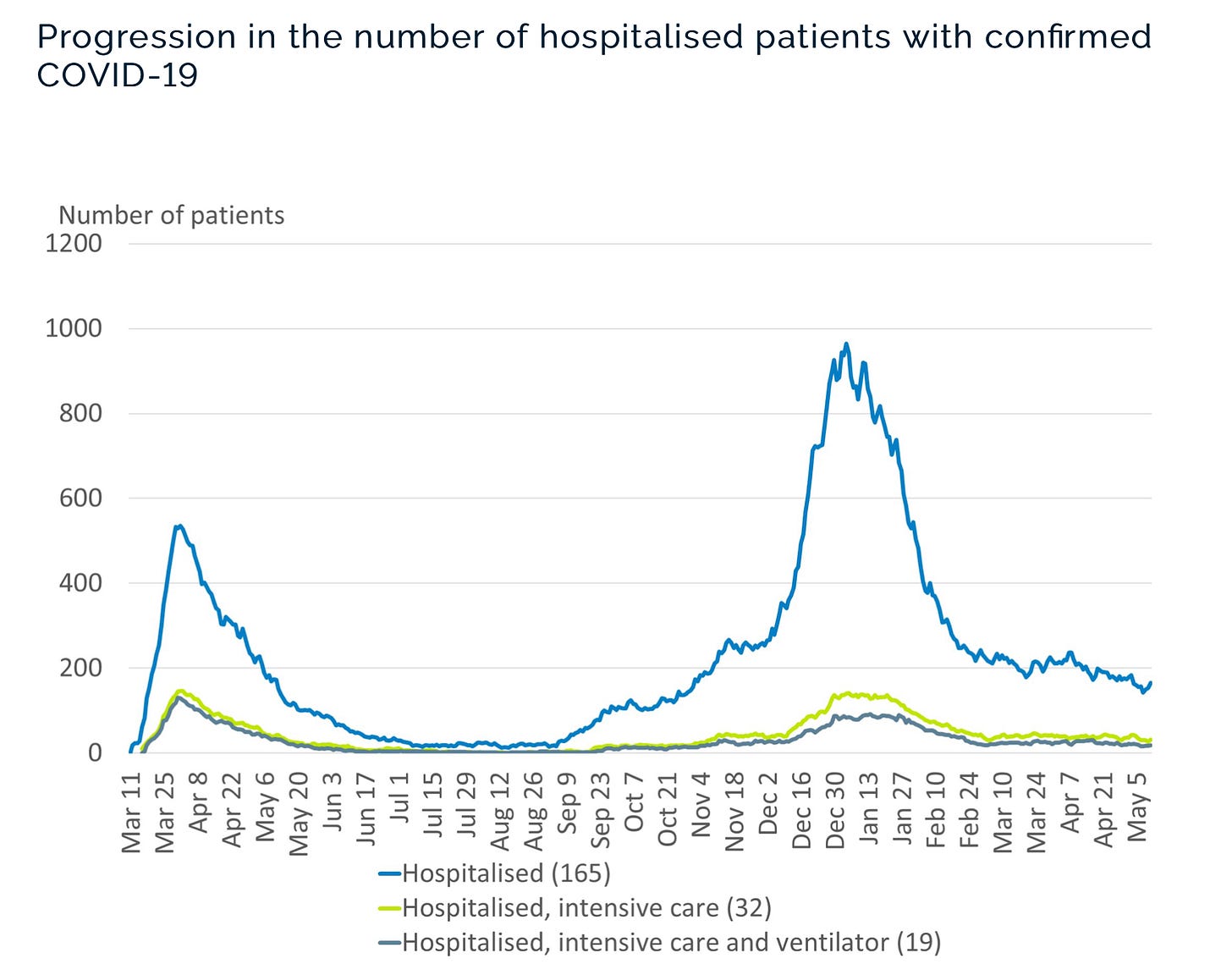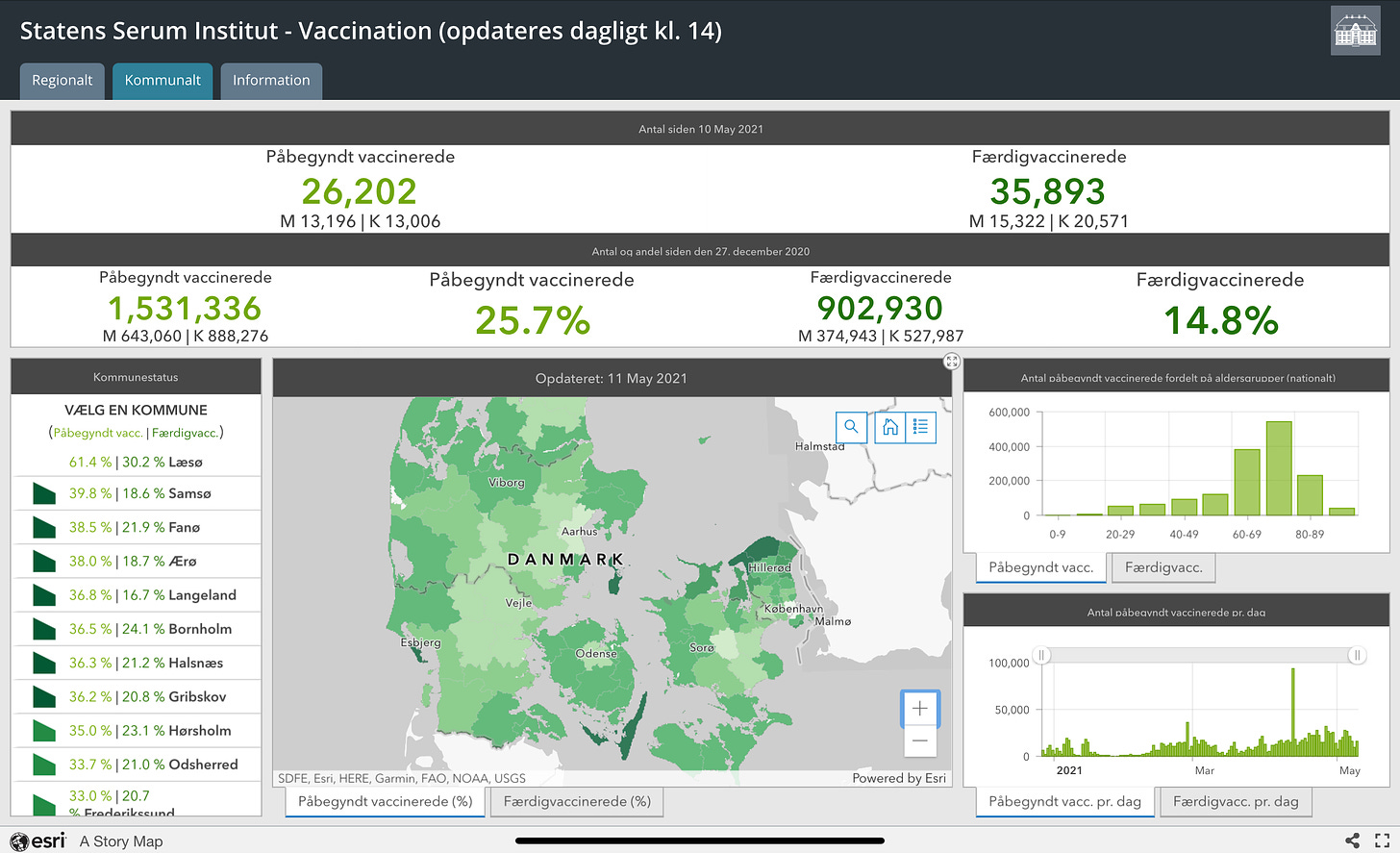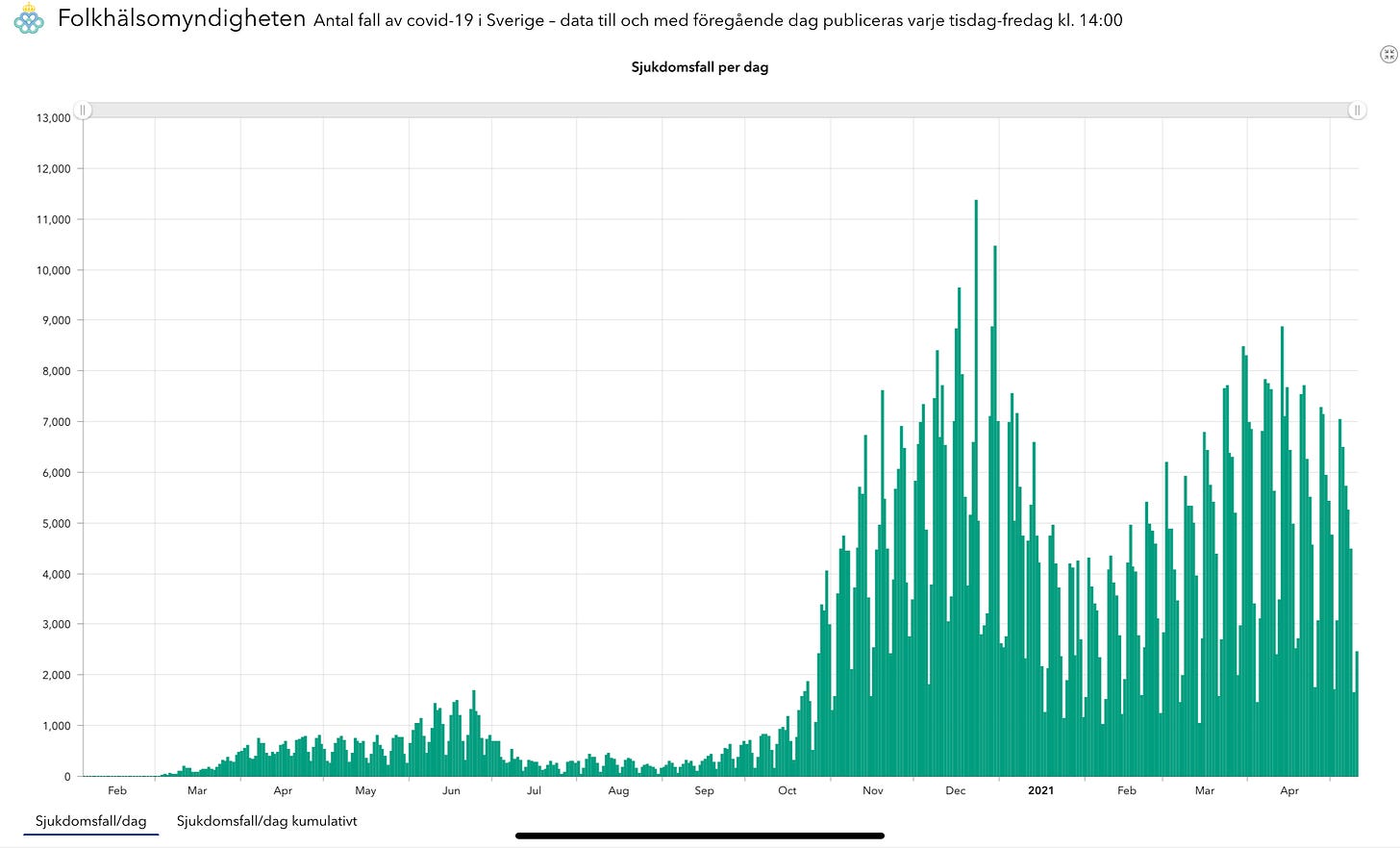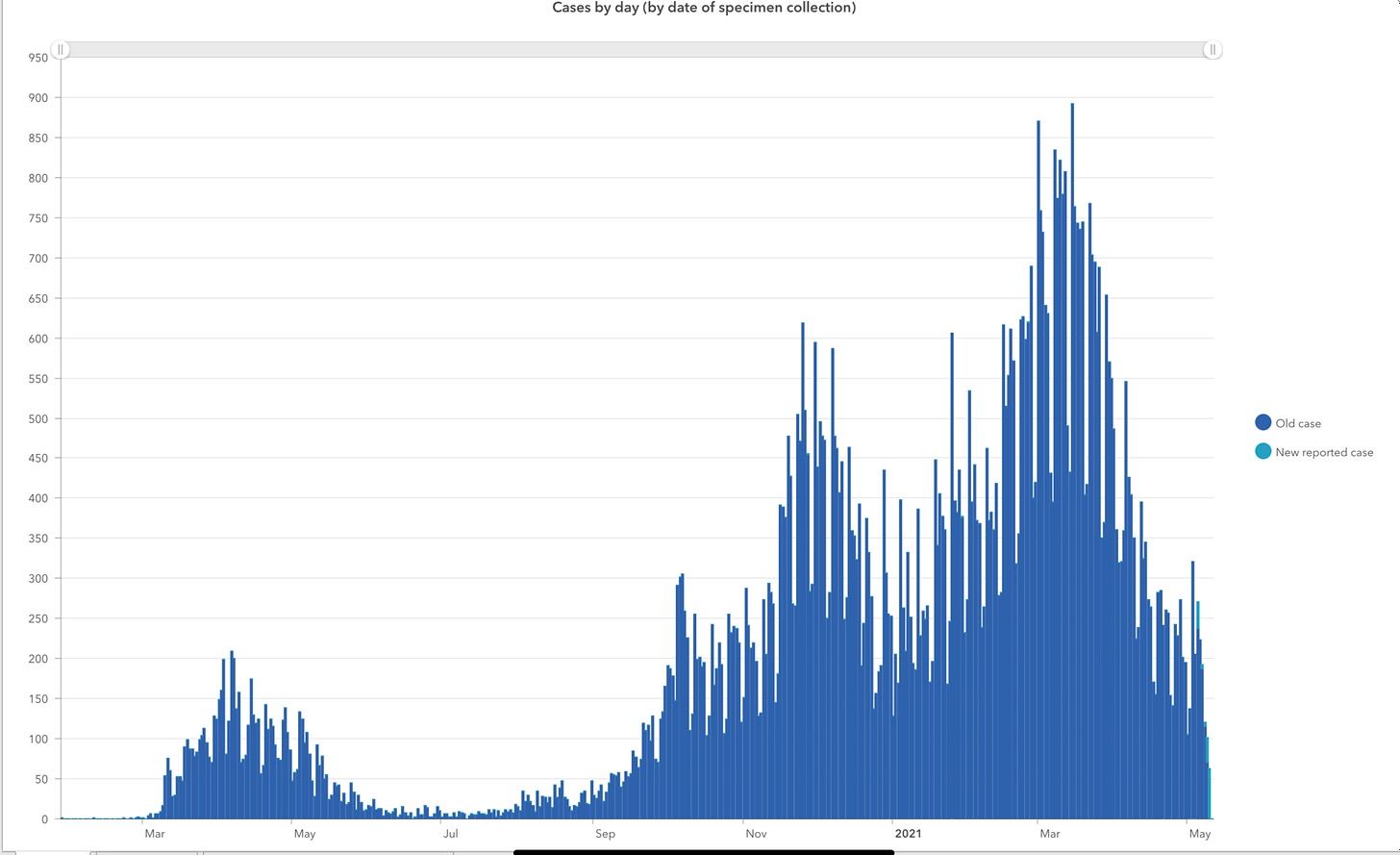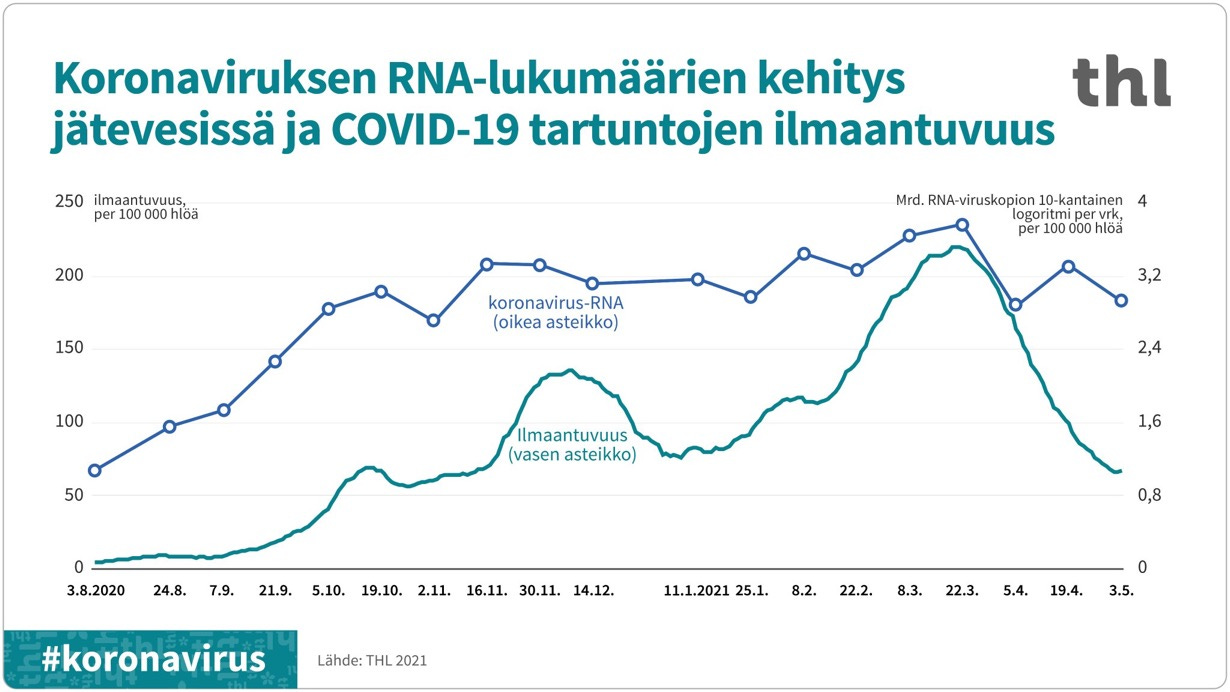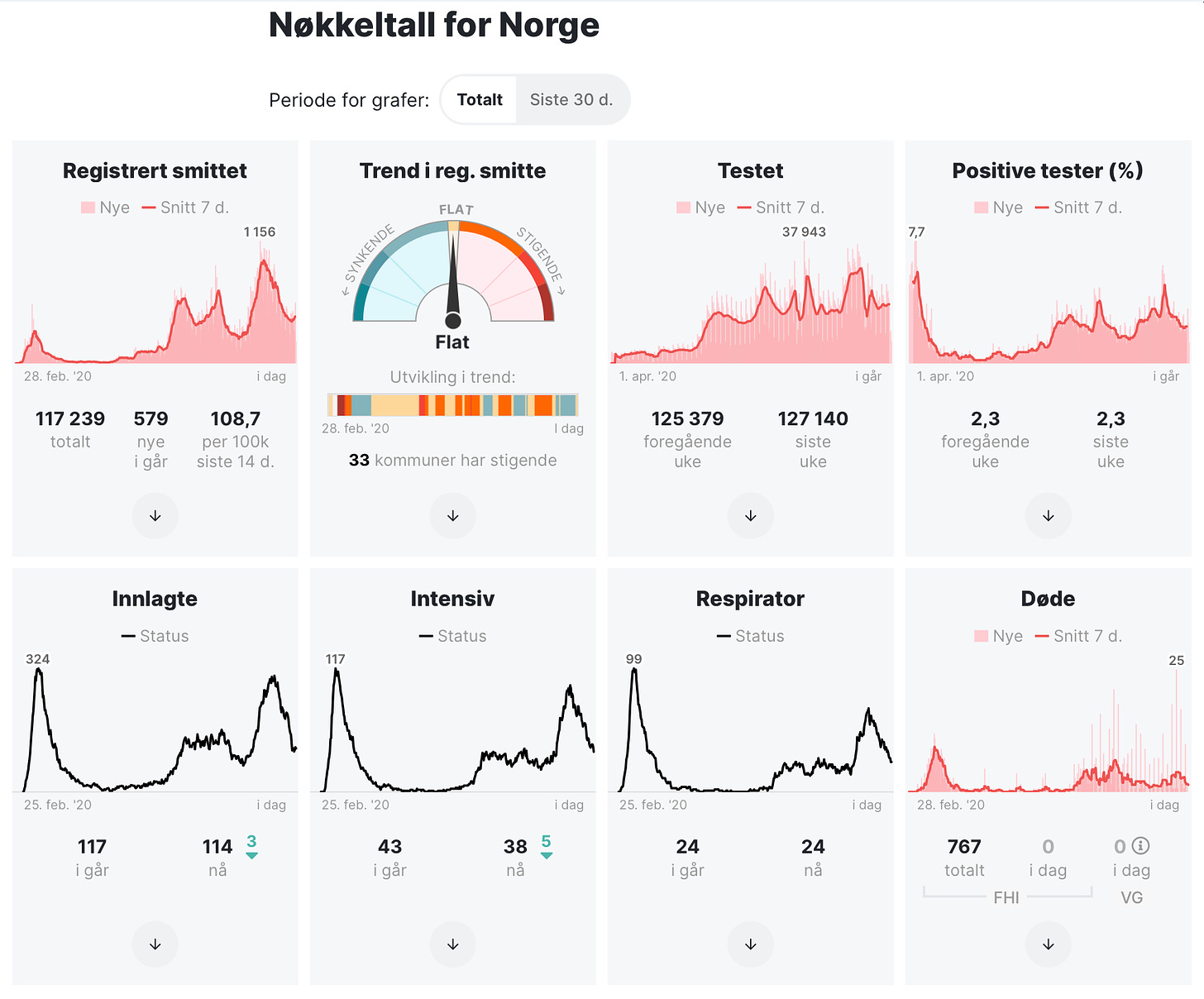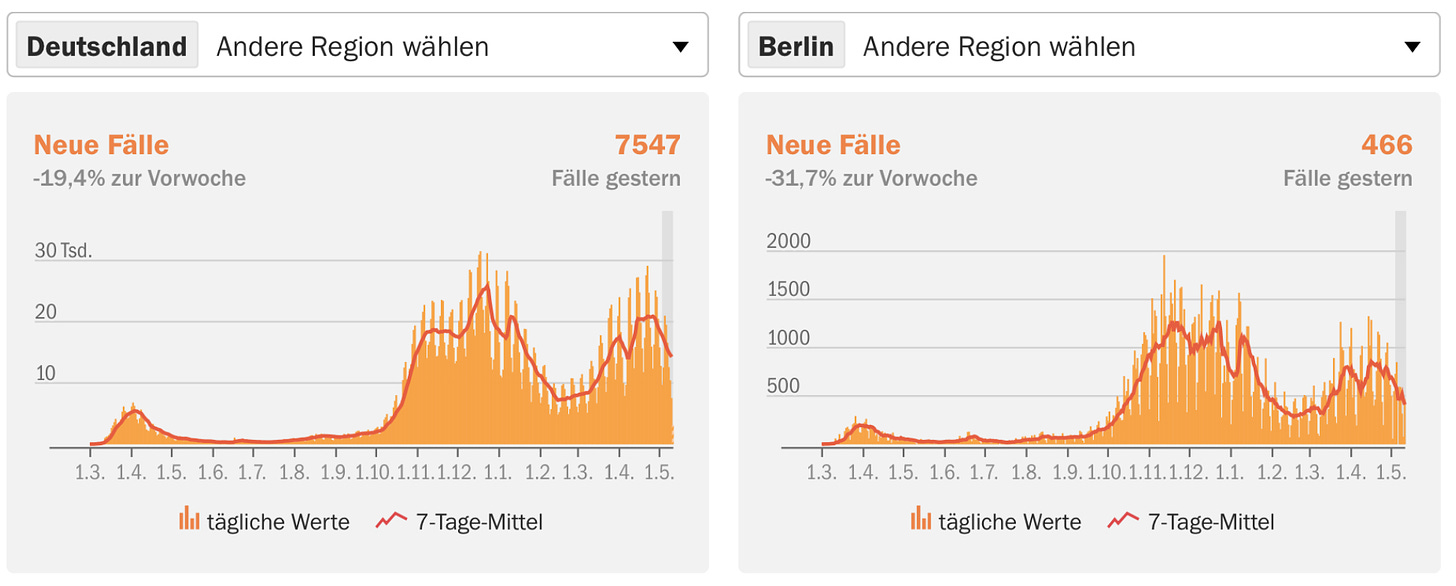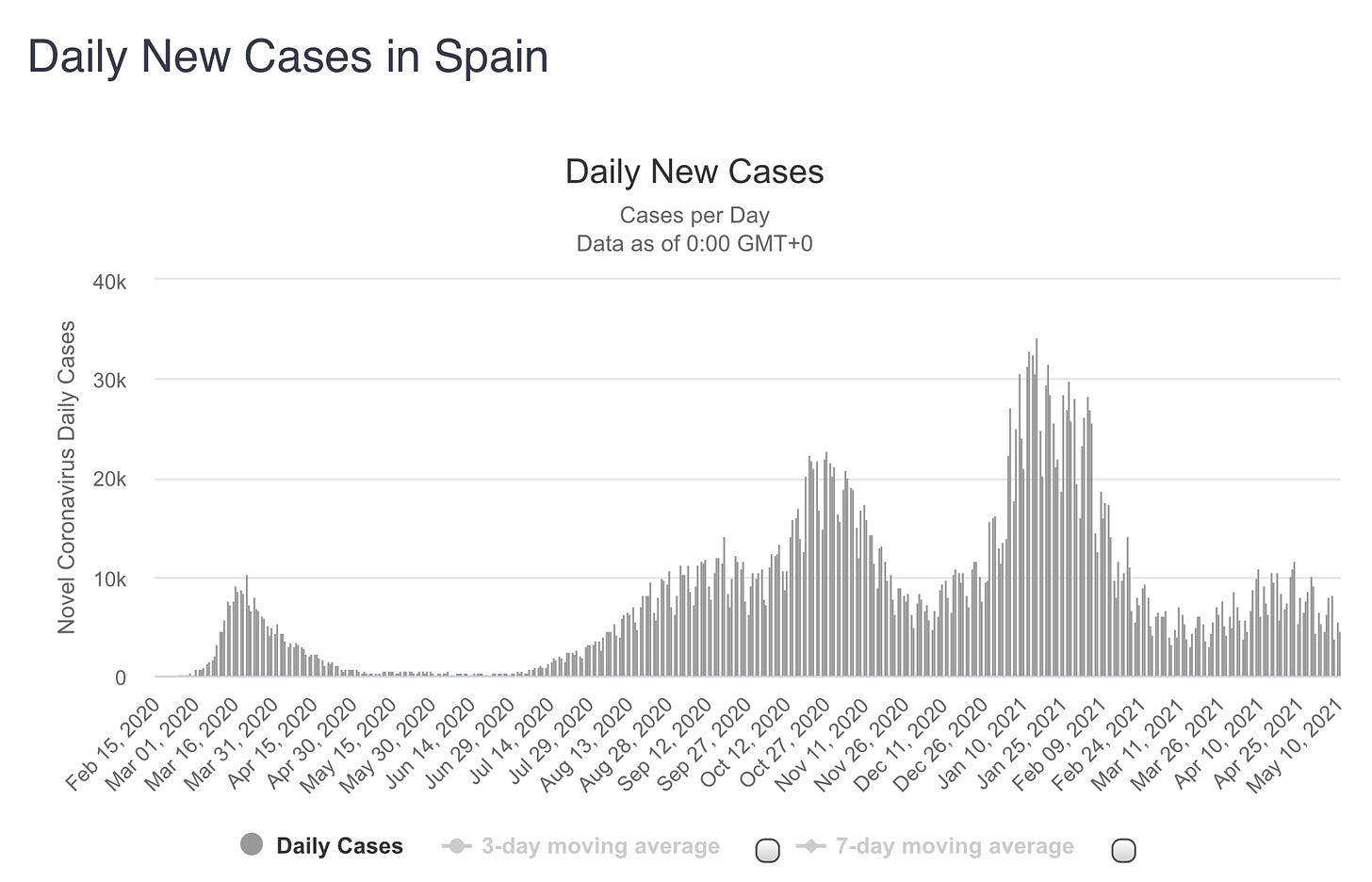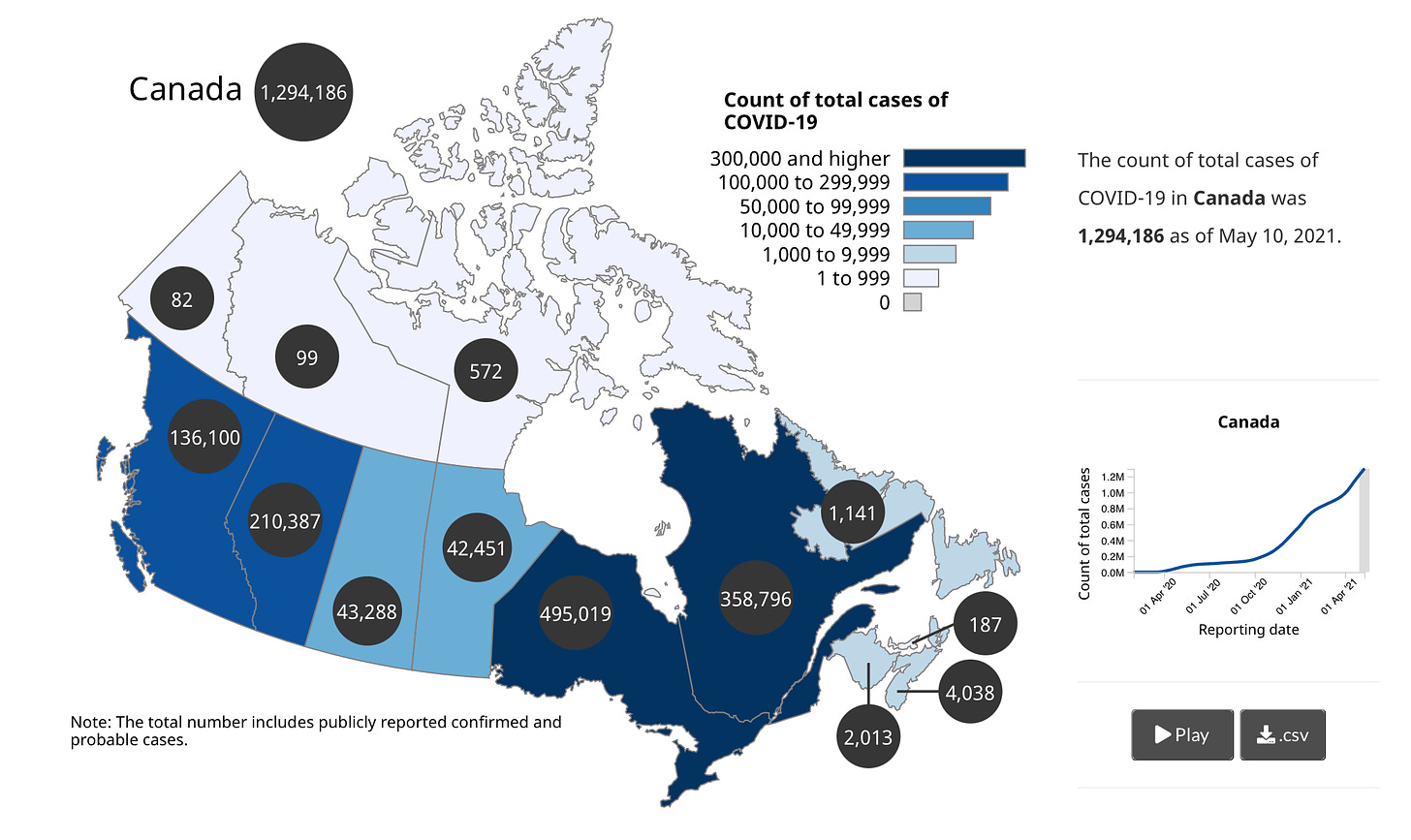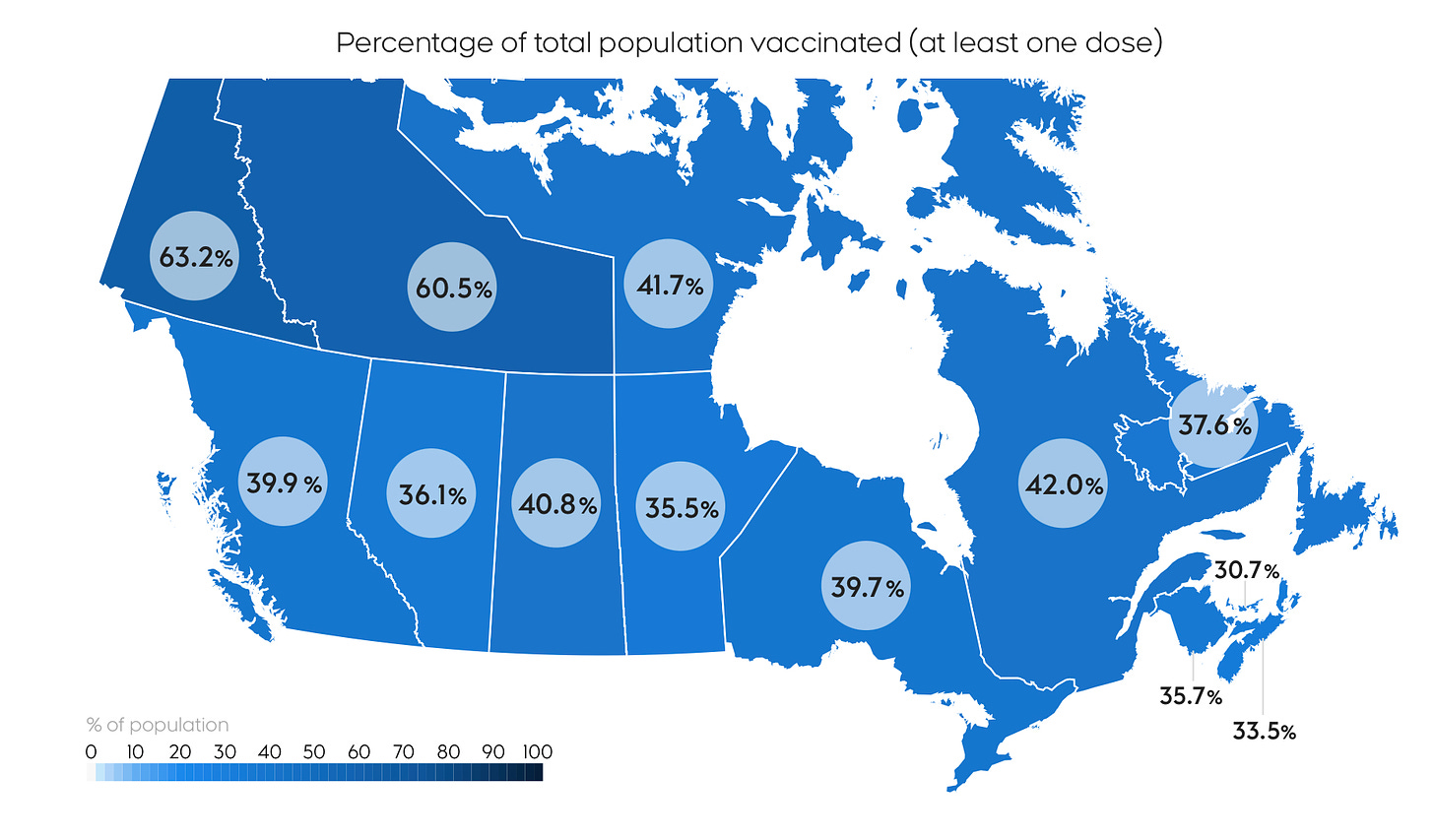🇩🇰
The mask mandate on all public transport in Denmark has been extended until at least June 10th.
Transport Minister Benny Engelbrecht:
“Society is gradually reopening, and therefore it is extra important that we take care where we can. Masks and visors have become part of everyday life in public transport, and we need to stick to the well-known precautions and good habits so that we can hopefully avoid too many local shutdowns.”
The mask mandate extended to buses, trains, and ferries as well as bus stops, train stations, and ferry terminals.
A cap on the number of passengers on long distance busses will also remain in place.
-
Denmark’s Health Minister Magnus Heunicke says the COVID contact number (reinfection rate or R0) remains at 1.1 for a 2nd week in a row. He notes infections are rising and is encouraging people to remain vigilant against the coronavirus and keep up “good habits” to prevent a further increase in infections.
-
Denmark is reporting 925 COVID infections and two more coronavirus deaths in the last day.
There were a record high 738,513 corona tests done yesterday, 546,372 rapid and 192,141 PCR, for a (PCR only) positivity percentage of 0.48%.
Denmark is seeing the highest increase of week to week infection rates of any country in Europe. COVID cases are up 18% in the last seven days compared to the week prior. There are currently just four E.U. countries seeing positive infection growth week to week: Norway (+10%), Greece (+9%), and Finland (+8%).
-
COVID hospitalizations (165) are up (+12), while the number of infected in an ICU (32) also increased (+5). The number of people on a ventilator (19) also edged up (+2).
On the vaccination campaign to date, 1,531,336 1st dose vaccinations (25.7% of the population) have been administered while 902,930 people (14.8%) are now fully vaccinated.
-
Region Syddanmark has issued its weekly vaccination update. The Southern Denmark health authority had 69,130 vaccine doses this week, 57,330 from Pfizer and 11,800 from Moderna. Some of those doses are going for second shots to healthcare workers who had one dose of AstraZeneca before it was pulled. The rest will go to the ten target groups currently on deck.
To date, 327,421 people living in Southern Denmark, about 26.7% of the population, have had one vaccination dose while 164,473 are fully vaccinated.
-
A Danish study trying to better understand long-COVID was published in The Lancet today. It found that for the majority of people who contract the virus and have a moderate to mild course of the disease, there was a low risk of severe complications after infection. However, for those who were hit hard and required hospitalization, a much smaller percentage, the rates were much higher for persisting symptoms like fatigue and breathing problems months after recovering.
The study followed about 9,000 people who had tested positive for the virus and another 84,000 who tested negative. The study also examined hospital environments and medications used to try and find more clues to what causes long-COVID. They determined both were low risk of causing complications.
The study admits its limitations, adding more and larger studies are needed to fill in the knowledge gaps on this topic. For example, it found people who have had COVID had 20% higher rates of seeing a doctor and were 10% more likely to need hospital outpatient care after recovery. But it was not able to definitively link that to long COVID.
You can find the study HERE.
-
The Metro Copenhagen Health Authority (Region Hovedstaden) is expanding testing capacity specifically for summer tourists. In mid-May, three more rapid testing facilities will open, two in North Sjælland and one in Bornholm.
Chairman of the Health Committee, Christoffer Buster Reinhardt:
“It should be more accessible to get a COVID test in the summer, when there are more tourists. That is why we are upgrading the testing in the North Zealand coastal towns and on Bornholm, which are large summer holiday destinations with many more residents in the summer than in the winter.”
He says more testing sites are also “in the pipeline” including for Copenhagen city center.
The region already boasts more than 90 testing facilities.
🇸🇪
Sweden has added 13,812 infections and another 44 virus deaths since its last update on Friday.
To date, 3,026,101 1st dose (36.9% of the population) and 883,761 2nd vaccine doses (10.8%) have been administered.
🇫🇮
Finland registered 124 infection and three more corona deaths in the last 24 hours.
COVID hospitalizations (114) are down (-7). ICU numbers (26) are unchanged.
To date 1,972,784 1st dose (35.4% of the population) and 220,873 2nd vaccine doses (4%) have been administered.
-
Finland’s health agency is now doing regular updates of its COVID wastewater monitoring program. It tests wastewater from 28 plants across the country as an early warning system for possible outbreaks. The agency says the most recent round of tests detected the coronavirus in 22 of the 28 wastewater facilities.
🇳🇴
Norway has added 796 infections and had no new corona deaths since yesterday’s update.
COVID hospitalizations (114) are down (-3), ICU numbers (38) also down (-5) and ventilator numbers (24) are unchanged.
To date, 27.6% of Norwegians have one vaccine dose while 9% have had both.
-
In a survey, the Norwegian Institute of Public Health has found that over half of 7,000 respondents who have had at least one vaccination dose have experienced side effects. Among the respondents, there was a big split in the side effects experienced between AstraZeneca and Pfizer doses.
Of the 2,799 people who had the Pfizer vaccine, 28.7% or 776 people, experienced an adverse reaction after the first dose. The number rose to 50% after the second shot. For the 4,437 respondents who had the AstraZeneca vaccine 75.7% reported having side effects.
Most of the adverse reactions were things you might expect like pain at the injection site, a fever, rash, fatigue, and occasionally dizziness and fainting. Specific to AstraZeneca there were also neurological impacts, bleeding issues, and blood clots reported. Norway postponed and then ditched AstraZeneca entirely.
There were no reported side effects for Moderna vaccinations, which were also administered in far less numbers than either of the other two vaccines.
-
Studies in Norway and other Scandinavian countries, found ethnic communities were hit harder by the pandemic, with higher rates of hospitalization and death. Now the Norwegian Institute of Public Health is trying to find out why. It has conducted a study on COVID hygiene practices, social distancing, and abiding by restrictions based on country of birth. The questionnaire found that those from low to middle income countries reported better hygiene practices, hand washing, using disinfectant, and coughing into an elbow or sleeve.
Department Director Øystein Vedaa:
“We see that those who were born in low or middle income countries reported on average better corona hygiene than those who were born in Western Europe or rich countries outside Western Europe. But low participation means that we can not simply generalize beyond the available material.”
Those from low to middle income countries also reported higher compliance with keeping socially distant from others and avoiding hugging and handshakes.
The survey found that support for coronavirus restrictions was high across all groups. However, those with a non-Norwegian background were more likely to think the government had overstepped.
🇩🇪
Germany’s Health Minister Jens Spahn is optimistic all German children aged 12 to 15 years old will get at least one vaccination dose before the new school year begins. Spahn said today that he anticipates the European Medicines Agency will approve an application by Pfizer within weeks to expand use of its vaccine to children as young as 12.
🇪🇸
Street parties one day and alarm the next. Spain has ended its six month COVID state of emergency as ecstatic citizens poured into the streets without masks or social distancing for impromptu celebrations.
According to EuroNews, the street parties prompted a stern rebuke from Spain’s top coronavirus expert, Fernando Simón, who heads the Health Ministry's emergency coordination center. He says his confidence had been high that infections would continue to decline until he saw masses of people partying in the street. Now he says his confidence is badly shaken and he is not sure what the impact will be on infection rates.
🇺🇸
The United States has become the second country, behind Canada, to extend vaccinations to children aged 12 to 15 years old. It has given the approval for the Pfizer/BioNTech vaccine to be used for children in that age group. Acting FDA Commissioner Janet Woodcock called the expansion "a significant step in the fight against the COVID pandemic."
The U.S. Centre for Disease Control says there have been about 1.5 million COVID cases among those aged 11 to 17 years old.
🇨🇦
Canadian Prime Minister Justin Trudeau sounded a cautious note today when asked when coronavirus restrictions might be lifted. Trudeau says infection numbers are still “too high” and hospitals in many parts of the country are still under incredible strain. He said that any relaxing of those restrictions might have to wait until at least 75% of the population has had at least one vaccination dose.
-
Yesterday, Canada reported 6,325 infections and 40 deaths as its numbers continue to gradually ease.
On the vaccination campaign to date, 14,994,375 1st dose vaccinations (39.45% of the population) have been administered while 1,263,780 people are now fully vaccinated.
Today, Ontario’s Health Minister Christine Elliott tweeted, “Ontario is reporting 2,073 cases of COVID19 and over 28,100 tests completed. Locally, there are 685 new cases in Toronto, 389 in Peel, 231 in York Region and 144 in Durham. As of 8:00 p.m. yesterday, 6,350,881 doses of the COVID-19 vaccine have been administered, and 49% of Ontarians have received at least one dose.” There were also 15 more deaths.
Quebec is reporting 660 infections and nine more corona deaths today. The province’s Health Minister Christian Dubé issued an open letter today urging young adults to get vaccinated. Quebec is about to open vaccinations for those 25 and older.
In Atlantic Canada, Nova Scotia had 118 infections. Newfoundland and Labrador reported 15. New Brunswick has two.
Manitoba had 502 infections and four deaths yesterday.
There were 147 infections and no new deaths in Saskatchewan yesterday.
Alberta recorded 1,597 infections and seven more corona deaths yesterday. There are 690 people in hospital with 158 in an ICU.
B.C. reported 1,759 infections and 20 virus deaths since its last update on Friday. There are 415 people in hospital, which is down by 30.




